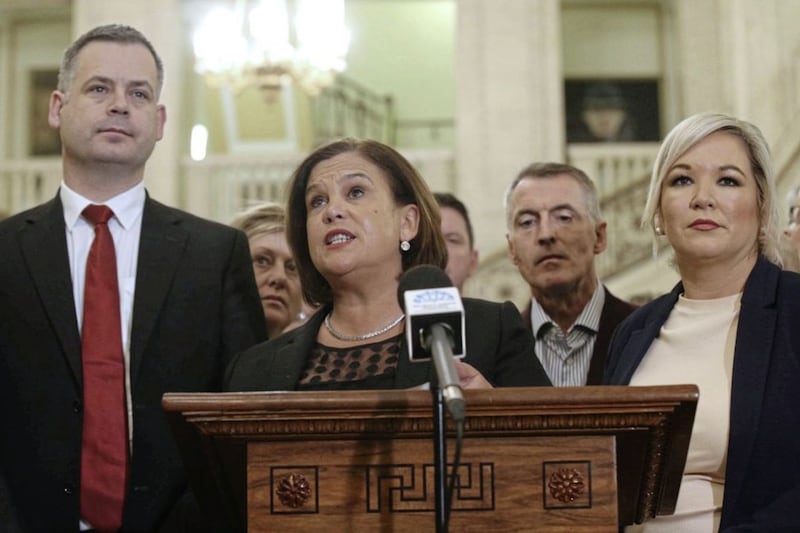The SDLP has said reform of Stormont's petition of concern could help break the deadlock around many of issues blocking the restoration of devolution.
As a second day of discussions between the five main parties and government officials concluded yesterday, SDLP deputy leader Nichola Mallon said her party backed reforming the assembly's veto mechanism in order "unlock a lot of the problems" at the heart of the current impasse.
Originally conceived as a method of preventing majority rule at Stormont, a petition of concern requires the signatures of at least 30 MLAs to ensure an assembly vote has 'cross community support'.
Critics have called for the system to be reformed due to the widespread deployment of petitions of concern in circumstances where many observers felt their use was inappropriate.
The Fresh Start agreement of 2015 included provision for new guidelines on petitions of concern but to date no changes have been forthcoming.
Ms Mallon said her party's negotiators had again pressed Secretary of State Karen Bradley on the detail of the apparent compromises made by the DUP and Sinn Féin last year.
She said people needed to know what the "stumbling blocks" to agreement were.
"We also made it very clear to the British government that reform of the petition of concern could unlock a lot of the problems holding back the formation of a government and the delivery of progress," she said.
"For instance reform of the petition of concern will mean that finally, equality can be delivered if we remove the veto that blocks issues like equal marriage."
However, the North Belfast MLA said Mrs Bradley confirmed that previously there had been "limited discussion" with Stormont's two biggest parties on reforming the petition of concern.
"If we want to deliver equality and ensure that the DUP doesn’t hold a veto over marriage equality in Westminster, we need to restore a government here," Ms Mallon said.
"We need power in our hands – and that means we need to reform the petition of concern to unlock equality and ensure the sustainability of any future assembly."
Talks aimed at restoring devolution will continue today at Parliament Buildings. However, while it was widely expected that Tanaiste Simon Coveney would travel to Belfast today, officials in Dublin said the minister was unlikely to attend the third day of the talks.
Meanwhile, Sinn Féin MP Chris Hazzard said proposals for a statute of limitations to block the probing of past incidents involving soldiers and other security forces personnel would be an "insult to victims".
MPs yesterday debated recommendations from Westminster's Defence Committee which call on the British government to block investigations "covering all Troubles-related incidents, up to the signing of the 1998 Belfast Agreement, which involved former members of the armed forces”.
Families of those shot dead by British soldiers in 1971's Ballymurphy massacre held a protest at Westminster in advance of the debate.
Mr Hazzard said there could be "no immunity for people who have killed Irish citizens".
"The families of those murdered by British soldiers in Ballymurphy in 1971 are some of many victims of state violence who, decades on, continue to seek the dignity of truth and justice – this fundamental right will be torn from them by this proposal, backed by the DUP," he said.
"It should be noted that the DUP were clear during negotiations that there should be no amnesties for anyone involved in the conflict."








